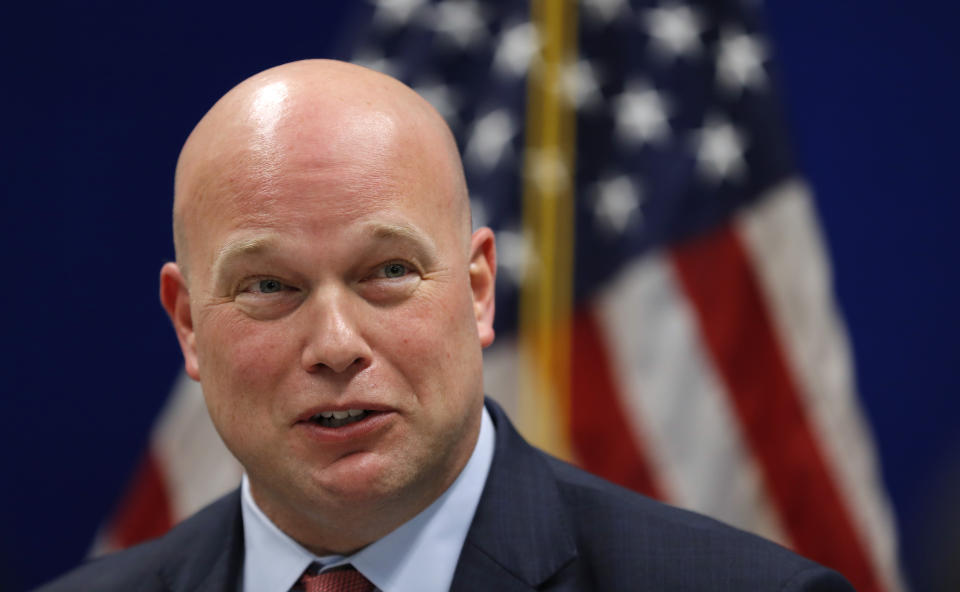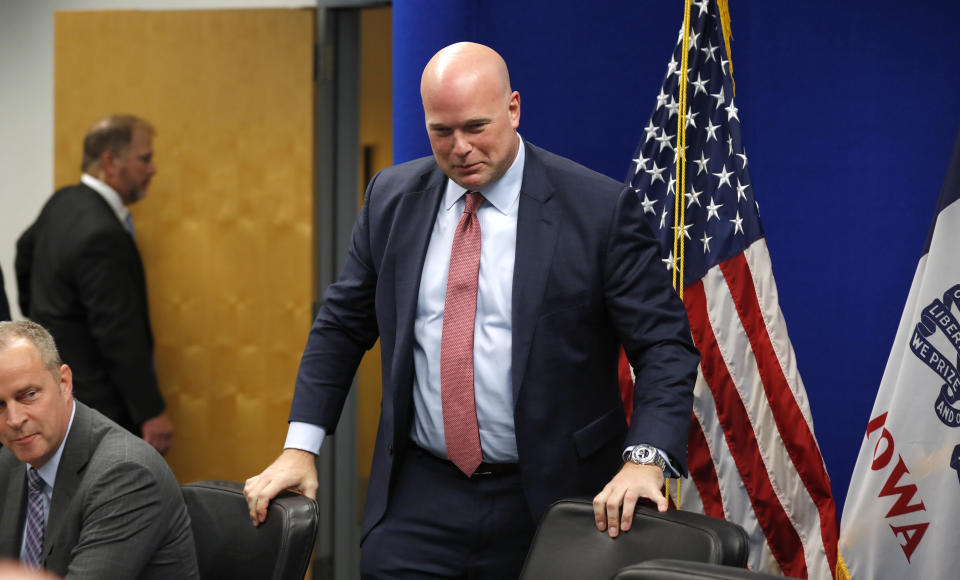Whitaker's failed renovation missed affordable housing goal
DES MOINES, Iowa (AP) — A failed apartment-rehabilitation project by acting Attorney General Matt Whitaker was a missed opportunity to preserve affordable housing in a rapidly gentrifying Des Moines neighborhood, a city official said Wednesday.
Whitaker abandoned the project in 2016 after 3 ½ years of cost overruns, delays and other problems, said Chris Johansen, the city's community development director. The developer who took over the project from Whitaker ultimately pulled out of the affordable housing agreement and fully refunded the city for its $165,000 loan.
Today, all 22 units in the complex are being rented at market rates that are higher than what the city envisioned when Whitaker's company was awarded the affordable housing loan in 2012.
"There's a lot of development on Ingersoll Avenue right now, and most of it is going market rate. We were trying to preserve some affordable housing," Johansen said. "It is a loss for that corridor."
Whitaker's abandonment of the project is the latest concern about his record that has arisen since his appointment by President Donald Trump last week. Critics have assailed him for his ties to a Florida company that has been accused of scamming investors, his prior comments critical of special counsel Robert Mueller's investigation, and his botched prosecution of a gay Democratic state senator in Iowa. Whether his appointment is constitutional is also the subject of legal challenges.
Johansen spoke one day after The Associated Press reported that the city terminated Whitaker's loan agreement in 2016 and a bank declared him in default on a nearly $700,000 mortgage after he stopped work on the building.
At least four contractors also had complained that Whitaker hadn't paid them for thousands of dollars in completed projects on the building. While the city got its money back, it's unclear whether the bank and the contractors were repaid in full.
The agreement between the city and Whitaker's company, MEM Investment, called for at least 11 of the units to be restricted to low-income tenants for five years. Monthly rents were to be capped at $631 with utilities for a one-bedroom and $783 for a two-bedroom, and only individuals earning below 60 percent of the median income were to be eligible. If those requirements were met, all but $25,000 of the loan would have been forgiven.
When Whitaker walked away from the project, he sold the building to another developer for $650,000. That developer completed the work but pulled out of the affordable housing plan, selling the building for $1.6 million in 2017 to another owner.
Today, apartment listings show that a two-bedroom in the building is going for $1,000 per month, while a one-bedroom flat is $700.
The city didn't have to repay any funding to U.S. Housing and Urban Development because it was able to use the money for other projects, Johansen said.
Whitaker met with state and local law enforcement officials in Des Moines on Wednesday and spoke at a conference on elder abuse. He didn't address his development project and wasn't made available for questions.
On Tuesday night, a Department of Justice spokeswoman said Whitaker didn't complete the project because of cost overruns and an unidentified "bad general contractor." A message left for a handyman who is identified in documents as the general contractor hasn't been returned.
Documents released Wednesday show that city officials tried to work with Whitaker throughout 2015 to finish the project but were unsuccessful. The city in October 2015 obtained a one-year extension from HUD that pushed the completion deadline back to December 2016.
Senior city planner Mary Neiderbach warned Whitaker at that time that the city wanted to see progress in the coming months. The city pulled the plug on the loan in April 2016 after the building appeared to be abandoned and was suffering additional water damage.
___
This story corrects the spelling of Johansen in one reference.




